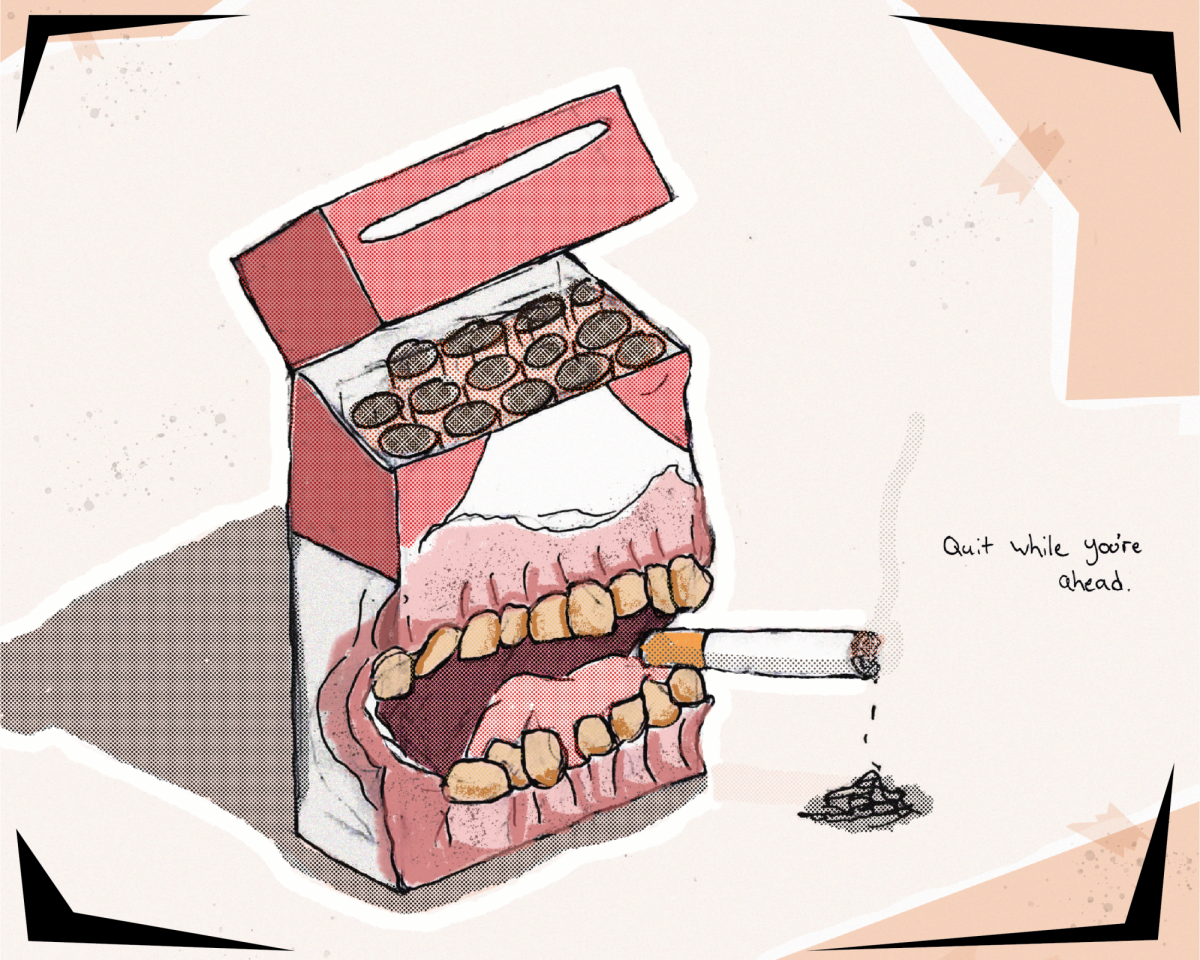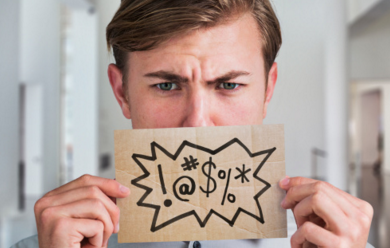I grew up in a household where my dad swore like a chronically injured sailor who couldn’t afford to retire. On the other hand, my mom was anti- “crap,” “freaking” and whatever other pseudo swear words you can think of. So, to avoid being grounded, I played it safe and stayed clear of most words that even resembled curses. My mom always told me that those who swear are often regarded as unprofessional, uncreative and overly emotional. As I’ve gotten older, I’ve developed different attitudes toward cursing, and, while I know there are people out there who still think like my mom, swearing really isn’t as bad as some people make it out to be. It might even be more healthy and effective, especially in light of recent research, than coming up with embarrassingly juvenile alternatives or avoiding swear words all together.
Swearing has always been more accepted by certain social groups. Maybe when you think of cursing you think of working-class, blue-collar tough guys who break their backs daily to pay for their Harleys, neck tattoos and expensive shaving equipment. Or the punk kids at school your parents always complained about because they’d blast their music too loud when they worked on their muscle cars in the garage next door. Then, of course, there are the jocks, for whom swearing is not only acceptable but expected. Over the years, however, it seems like people have become more accepting of swearing in casual and professional contexts, as well as in times of distress, anger, pain or frustration, regardless of age, profession, sex or personal background.
Swearing is clearly more common these days, if movies are any indication. Films depicting respected professionals and characters in modern literature and media swearing may all play a role in peoples’ growing tolerance and acceptance. “The Wolf of Wall Street” reportedly dropped the “F-bomb” more than 500 times, as confirmed by Forrest Wickman of Slate.com. The “F word” is also more common now in PG-13 rated movies, as are other curse words that are considered less severe.
From my experience and association with professionals, if you can’t handle a curse word here and there, you probably won’t last long. If you can drop a few yourself, it may even boost your confidence, your credibility and your morale with coworkers. I work for a small, downtown business litigation firm, and in such a highly intense and successful professional environment it seems like every other word said in our office is a form of profanity. Swearing judiciously conveys to associates, clients and coworkers that there’s passion running through how we handle our cases. Not necessarily misplaced or overly emotional passion, but passion nonetheless. From what I’ve seen, clients want to see some fire behind their attorney’s eyes and a strong desire to win their case. When properly implemented, swearing does a good job of emphasizing this.
Not only does swearing seem more widely acceptable in general these days, the topic has been given a fair amount of attention and formal research that has resulted in further support of peoples’ newfound comfort in swearing. According to Drake Baer of Business Insider, researchers in the U.K. have conducted various experiments and studies to confirm the notion that swearing in certain situations has the power to reduce pain and make an individual feel better emotionally. In one, it was confirmed that when repeating a curse word people were able to keep their hands submerged in ice water for 73 percent longer than if they didn’t. But, interestingly, there are diminishing returns shown in the positive effects of swearing in the experiments.
Even with diminishing returns for habitual swearers, there is a place for strategic, witty uses of profanity that will not only increase pain tolerance but will earn respect, boost morale and emphasize your seriousness and confidence. Swearing these days, if used appropriately, won’t hold an individual back the way it used to, or the way people like my mom think it will. Just ask my dad. He’s done alright. And if that isn’t enough, have a chat with my f***ing boss.






















